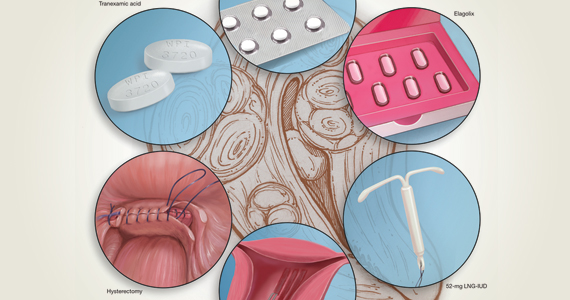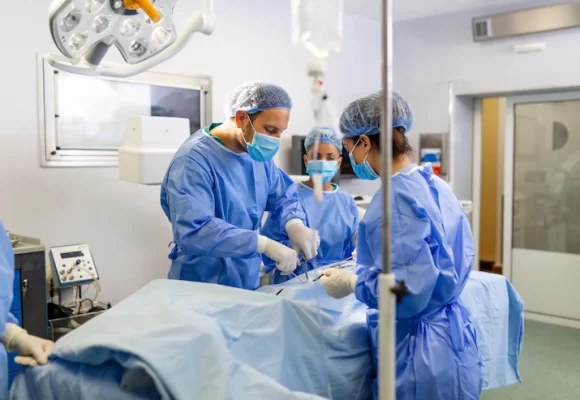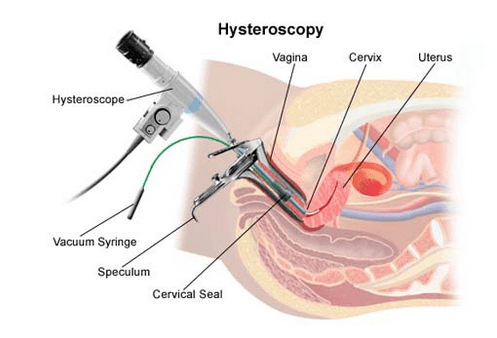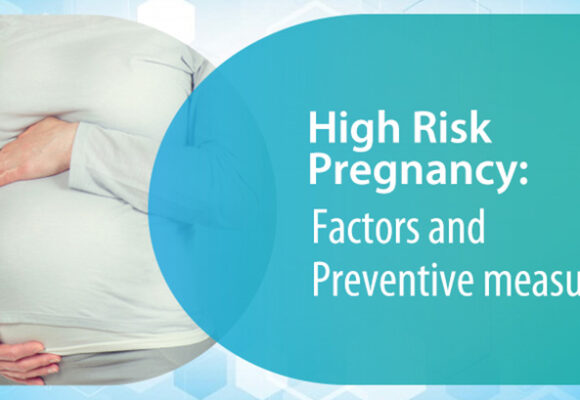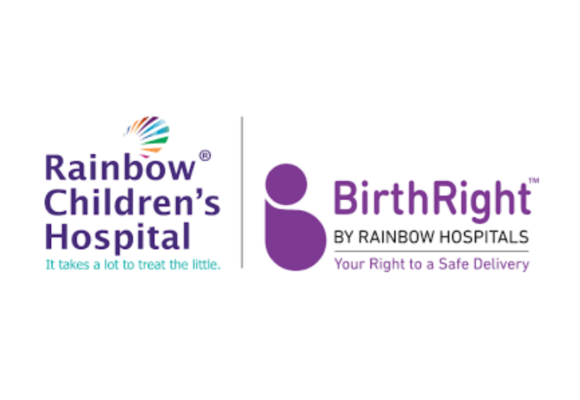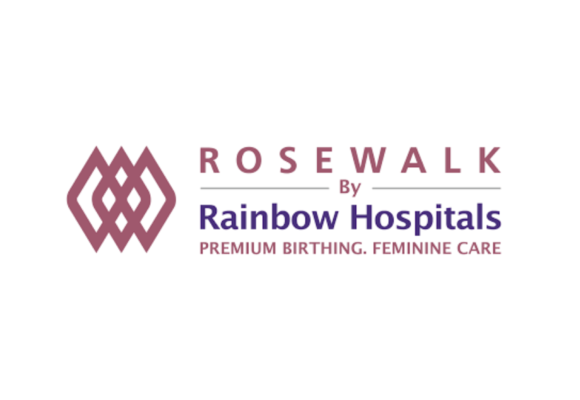It's natural to have many questions about labour & delivery as your due date approaches. Check out these FAQs in an Indian context.
About Dr. Rinku Sen Gupta Dhar
She actively seeks alternatives to hysterectomy, however, if surgery is needed, has no qualms performing it, owing to her superior surgical skills across several basic and advanced gynecological surgeries.
Dr. Rinku is also known for her efforts over the last 20+ years to educate and encourage mothers for a normal delivery. She monitors her own cesarean rates and counsels expecting women for a normal birth.
In line with international guidelines, she firmly believes that pregnancy is not a disease and should not be treated as such. ‘Mothers’ as she refers to pregnant women, instead of calling them ‘patients’ trust her for her honest and straightforward approach and vouch for her expertise in managing even high risk pregnancies with ease.
Dr. Rinku Sen Gupta Dhar’s name is synonymous with Vaginal Birth After Caesarean Section (VBAC) and she is a sought after VBAC friendly doctor in Delhi. Mothers come to her from even Gurgaon and Noida for a chance to deliver under her care.
Women consider her a friend, counselor and guide for all their health issues, no matter how complicated.

Why Choose Us?
We feel blessed that our patients consider us the best gynecologists in Delhi because of the connection and rapport we share. We continuously strive to do better each day by listening to your concerns and addressing them with solutions best suited to your individual situation.
Highly Qualified Gynecologist
With 25+ years of experience spanning pregnancy and various gynecological concerns, we have the skills and knowledge to treat any problem, regardless of how simple or complex it may be. Our team is trained from the leading medical institutions in Delhi such as Lady Hardinge Medical College and University College of Medical Sciences and advocates minimum interventions unless the situation absolutely requires it.
Focus on Normal Childbirth
We believe that every woman has the innate ability to give birth with the least interventions. In line with international guidelines, we counsel pregnant women during the antenatal period, explain the physiology of childbirth and prepare you, physically and mentally, to have the birth of your dreams.
We understand that labour is unpredictable, and should any unforeseen complication arise, can perform a cesarean without any delay, to protect the mother and baby.
Expertise in Array of Women’s Health Concerns
We have an in-depth understanding of all gynecological conditions (fibroids, ovarian cysts, polyps etc) that may affect women across ages. We listen to your concerns, encourage you to ask questions and then guide you through the condition before making recommendations.

Dr. Rinku Sengupta Dhar
Address
FC-29 5, Gitanjali Malviya Nagar Rd, Near Malviya Nagar Metro Station,New Delhi-110017
Phone
+91 9810404057
rinku.sengupta68@gmail.com
Departments
Gynecologist, Obstetrics
Patient Testimonials
Latest Blogs
Postmenopausal Bleeding: A Cause for Concern?
Any kind of postmenopausal bleeding, whether spotting or heavy flow, needs to be investigated by a gynecologist.
The First Time I Held
Lorem ipsum dolor sit amet, consectetur adipiscing elit. Pellentesque fermentum massa vel enim feugiat gravida. Phasellus velit risus, euismod a lacus et.
- 1
- 2
Important FAQ
Pregnancy is a physiological state when your body is undergoing changes to accommodate the new life in your body This involves increase of hormones in your body like estrogen ,progesterone.Therefore your body may take a little while to adjust to these changes and you may sometimes have nausea,weakness,body aches,leg cramps,mood changes.Some women may additionally feel acidity and constipation.Therefore you may not be having a good apetite and you may not be able to eat much.It is quite normal not to gain any weight in the first trimester and even some of you may loose weight.Please be free to eat whatever you like to have provided it is homemade and easily digestible.Do not worry if you cannot take milk .Right now your baby is very small about 5 gm to 50 gm and whatever you eat comfortably is enough for the baby.If you suffer from repeated acidity it is better you have bland food and concentrate on food items like toast with jam ,banana ,apple,curd,rice etc.Out of 100 mothers about 5 to 10 mothers have extreme vomiting episodes leading to dehydration and extreme sickness.This may require hospitalisation sometimes more than once and the doctor will not allow you to take orally and give you i/v fluids.This is a self limiting condition and will eventually settle so do not get unduly worried about it.Stress sometimes aggravates the condition so avoid stressful situations.
Remember pregnancy is a normal physiological state and in a pregnancy with no known high risk factors all routine activities are allowed .But do not start any new strenous activity like swimming.cycling etc.Remember that your body is already doing extra work in pregnancy to sustain the pregnancy.Therefore do not put any extra strain on it without professional supervision. But at the same time it is important to continue the physical activity you are used to. If you have an absolutely sedentary lifestyle this is a golden opportunity for you to change your lifestyle forever.Please start with the easiest exercise walk everyday slowly building it upto 30 minutes a day.
How much you are showing or not showing depends not only on your pregnancy duration but also on the tone of your abdominal muscles. If you have a good tone you will show less athough the height of the uterus (which indirectly shows your babys growth) is corresponding to the duration of your pregnancy.
Some women may luckily not feel any of these symtomps considered to be the hallmark of pregnancy.Their body probably quickly adjust to the changes in heart rate,respiratory system and other organs of the body.
Carpal Tunnel symptoms are a result of swelling within the sheath around your wrist that leads to compression of the median nerve. The median nerve goes to the last three fingers on your hand and causes numbness. This will resolve after you deliver. I do not find hand splints to be very helpful but you are welcome to see an orthopedist, preferably a hand specialist. Swelling in the legs puts pressure on the nerve endings in the feet and as a result causes swelling, numbness and a tingling sensation. It will resolve after delivery.
This is very common in pregnancy. It is only an issue if your blood pressure is elevated, you are having a headache that won’t go away with rest or, you develop severe middle or right upper abdominal pain unrelieved with liquid Digene or start seeing flashing lights in front of your eyes. These can be indicators of Pregnancy Induced Hypertension and needs to be evaluated in the office or at Labor and Delivery. Elevating your legs above the level of your heart will make it better, but the swelling will likely return when you get up. Please note that after you deliver, many patients have increased leg swelling for the first few weeks. It takes a while for your body to remove the excess fluid you were carrying to support the baby
Constipation of varying degree is common in pregnancy because of rise ofhormones which may cause your intestinal movements to slow down.Try and have lots of fibres ,fruits and fluids.Bel fruit could be specially useful.The pulp of the Bel fruit could be used as a drink or eaten as such.At least 8 to 10 glasses of fluids in any form could be taken But if you suffer from severe nausea then you may not be able to drink a lot of fluids and you may need oral or injectable antacids and laxatives and stoolsofteners prescribed by your doctor. Severe constipation can cause trauma in the passage of your stool and cause it to be painful and bleeding.
The first three months of pregnancy is a very unique time.A lot of new hormones are secreted in your body which have a very important role in the sustainence of pregnancy.But your body may require a little time to get used to these changes Therefore you may experience a lot of vague symtomps like nausea,vomiting,bodyaches,lethargy,leg cramps,sleeplessness,headache,palpitations.Gastritis (Acidity) and constipation may sometimes plague you.That is why it is important to avoid outside food specially sour,chilly and spicy food.Drink lots of fluids and fibre rich food so that constipation is avoided. Try and eat small quantities of food every 3 to 4 hours.You really don’t have to eat extra calories in the first trimester. So even if your apetite is less and you are not able to eat much please do not worry.
There is no contraindication to routine activity in first trimester of pregnancy.Pregnancy is a physiological state and it should not be considered a disease.Although there is no medical data to support it we usually ask you to have restricted physical activity if you have had one or more miscarriages. An half an hour brisk outdoor walk is desirable .You can wear a mask if the pollution makes you uncomfortable.
Travelling in pregnancy is allowed approximately upto 34 weeks.But the second trimester that is between 14 to 26 weeks is the best time to travel.But remember pregnancy can be rarely unpredictable and therefore medical care and facility should be accessible to you wherever you are going.Travel by air is the best as you reach your destination fast.
During pregnancy there is a rise in progesterone hormone which can cause the veins in the rectum to become congested and start bleeding .This is called piles.
+
It is bad enough that the pregnancy slows down your intestines, add prenatal vitamins that contain iron supplementation and it only gets worse. Your goal is to have a bowel movement daily. I know for many women this may not be a common occurrence but it will decrease your risk of colonic polyps, colon cancer, hemorrhoids, and anal fissures. Although many vitamins contain stool softeners they do not often correct the problem of slow intestinal transit. Gentle Laxative Drink at least eight 8-ounce glasses of water each day. When the problem cannot be corrected by increased dietary fiber and fluids then a gentle laxative like Isapgul powder will help. Isapgul is a tasteless odorless powder that can go in your drink or on your food, you start out with using it four times a day until you have a normal bowel movement then you can cut it back to once or twice a day. Cause of Hemorrhoids Hemorrhoids are dilated rectal veins that occur because of decreased blood flow from the lower part of the body to the upper part. As your uterus enlarges it pushes on the large vein next to the Aorta slowing down the return of blood to your heart and dilating your rectal veins, leg veins (varicosities) and capillaries. Treatment of Hemorrhoids The only treatment for the prevention of hemorrhoids is to avoid constipation. Once you have a symptomatic hemorrhoid, there are over the counter medications to help. Anusol to decrease swelling and lignocaine jelly to act as a local anesthetic. If these do not help some prescription medications may help.
If you do not have any prior high risk factor like previous pregnancy loss,high blood sugars ,high blood pressure etc you can meet the doctor about 7 to 9 weeks from your last menstrual period that is about 3 to 5 weeks from you missed period.This is the time that your doctor may do a dating ultrasound that is to see whether your expected date of delivery from your dates is corresponding to that of the ultrasound .Ultrasound dating is very accurate upto 11 to 12 weeks of pregnancy but after that the expected date calculated from ultrasound varies depending on the relative growth of the foetus.
The initial expected date of delivery is calculated from the first day of last menstrual period.The human pregnancy gestation is calculated to be 40 weeks from the first date of last menstrual period.But if your cycles are long and your ovulation has not happened exactly midcycle then your actual expected date of delivery is better calculated from ultrasound done before 12 weeks.
No matter how many ultrasounds you have during your pregnancy it is the first one that will help determine your due date. If the ultrasound due date is within a week or so of your calculated due date by your last menstrual period then we do not change your expected delivery date. The later you get in your pregnancy the more inaccurate your calculated due date will be. Some babies are born six pounds while others ten pounds but early in pregnancy all babies are about the same size. So once you have your first ultrasound whatever due date we determine is your permanent due date
There is no absolute contraindication to breast feeding while you are pregnant.But obviously breast feeding drains you and an additional extra calcium and protein is required to meet the demands of breast feeding. Also pregnancy put an extra burden on the body and additional 300 calories and 10 grams of protein are required for pregnancy.Therefore the body is under a lot of stress and strain which can be very exhausting. It is better to gradually stop breastfeeding and start weaning your baby while you are pregnant.
It is very important to understand that the additional nutritional demands of pregnancy actually start from late second and third trimester onwards.It is very normal not to feel hungry in the first trimester.In fact it is quite normal to loose weight in the first trimester specially if you are vomiting frequently. What is really important to understand is that you are not eating for the baby”s quantitative growth so much but to keep your self healthy.So eat whatever you are comfortable with in the first trimester.Ofcourse do not eat out ,do not eat spicy and oily food.You will see you will be able to tolerate bland and carbohydrate rich food better.Eat frequently but very small quantities. You may have a sudden perversion to specific food items .Do not worry .It is a passing phase and it will soon be over.
Itching is very common in pregnancy and often occurs around the breasts and belly; it is related to skin stretching and hormone changes. Pruritic Urticarial Papules and Plaques of Pregnancy (PUPPS) is a skin disorder unique to pregnancy. It starts as small itchy, red bumps around stretch marks that become larger patches that spread over the entire body. Antihistamines and high dose steroid creams can provide relief. I have seen this resolve during pregnancy but often it goes away only after the birth of your child. Stretch Marks There are no miracle cures for stretch marks as they are typically hereditary but keeping your stomach well moisturized may alleviate some of the symptoms.
First of all eat sensibly. You require extra three hundred calories and 10 gm protein daily in the late second and third trimester. But that does not mean you start eating for two people. Eat lots of fruits, vegetables, fish, low fat milk and milk products, pulses, soya protein. Keep a check on sweets, biscuits intake. Secondly as soon as your doctor allows walk atleast half an hour daily. Enroll yourself for antenatal exercises and breathing classes and follow the routine atleast five times a week. Drink atleast 10 to 12 glasses of water daily.
We can only give you the approximate time of your delivery as labour is expected to start any time after 37 weeks. Your expected date of delivery is at 40 weeks but only 4% women deliver on their due date. Others deliver before or after their due date. Delivery is not a surgery that you can plan precisely when you will get admitted. The more you are flexible about it the better prepared you will be.
Your expected date does not keep changing as pregnancy advances.The purpose of third trimester ultrasounds if done is not to determine your expected date.Expected dates are only calculated from your own dates and ultrasounds upto 12 weeks. if there is a discrepancy of more than a week we go by the 12 week ultrasound or we go by your own dates.The only time your expected date may change is if you develop a complication like high blood pressure or high sugars and therefore we need to deliver you earlier.
Absolutely nothing. Your cervix will release a tremendous amount of white, thick mucus as the pregnancy progresses. It does not mean you are going into labor anytime soon. An unscented panty liner will help keep your underwear dry.
There is no fixed yardstick about when you should reach the hospital. But you are usually in true labour when you have the contraction every 5 to 10 minutes lasting for 30 seconds for atleast an hour or so. But the general dictum is if you are getting regular contractions accompanied with or without blood stained mucoid vaginal discharge you must visit the hospital.
Every female species on earth is naturally endowed with the gift of reproductive instincts. This will help her to understand that she is in labour. Human beings are luckier because they have their mothers and grandmothers to guide them. Elephants are probably one of the few mammals in whom family participation and bonding plays a very important role in labour. In a wild herd of elephants females gain birthing and maternal experience from a very young age through witnessing many births in the herd. By the time it’s their turn they are prepared for the event and have a support structure of older experienced females. The active phase of human labour lasts 6 to 10 hours. This is preceded by a phase of latent labour which may last for 8 to 10 hours. There will be occasional uterine cramping and occasional mucous or brownish discharge in this phase. This may alert you to the arrival of true labour after a day or two. Under natural circumstances you have enough time to reach the hospital even after true labour sets in. True labour is marked by intermittent contractions or cramping coming regularly lasting for 30 to 45 seconds. These contractions start becoming more frequent and intense that is every five to ten minutes as labour progresses. Therefore once you are in true labour the cramping will not stop or taper off and it will be more intense, longer lasting and frequent with time.
The active phase of labour lasts for 6 to 8 hours. This is the time that there are uterine contractions which are perceived as painful intermittent uterine cramps .For some women it may be even shorter. If your active labour continues for more than 10 hours your doctor will take corrective measures or deliver you by caesarean section.
Pain is a very individual perception. If you ask 100 postpartum mothers about the pain they had there will be different perceptions and a large majority will tell you that the pain was moderate to severe but it was not intolerable and they have no regrets that they attempted a vaginal delivery.
First and foremost be calm, everything is under control if you have faith in yourself and your medical caregivers. The faith will create a bond which will help you and the medical team to work optimumly towards a positive outcome. Initially walk around and be comfortable in any position. Have lots of fluids in labour. Once you are in active labour certain postures and jumping on the birthing ball may be suggested to you. If you are comfortable some intramuscular pain-relieving agent may be offered. If you are still uncomfortable and labour is anticipated to be long you may opt for epidural analgesia.
Once you are booked with a doctor, the doctor or one of her core team members will always be there for your delivery. But it is important to understand that labour and delivery are not like surgeries where in a fixed time and slot is allotted for the same and it is done in a stipulated time by the doctor. Labour whether induced or spontaneous requires patience and time. A single person or persons cannot accompany you all the time. Therefore the hospital is equipped with trained labour room medical and paramedical personnel including doctors at all times of the day or night. They work in coordination with your consultant at all times. Your consultant will take all the medical decisions and will be there for your delivery. But over and above that a continuous care needs to be given to you in the birthing room and you will be taken care of by a vigilant and caring team.
Yes we encourage the presence of a supportive family member with you during labour. But just as a positive companion should do wonders for you in the labour area, a panicky nervous person can make things difficult for not only you but also the medical team looking after you. Therefore we encourage your labour companion to accompany you in the pregnancy workshops and try to make him/her understand his role.
This question cannot be answered by your doctor in majority of cases before the advent of labour. Even after established labour we can only periodically assure you that progress of labour is satisfactory. This does not necessarily mean that vaginal delivery is inevitable as in 5% women caesarean section can happen after full cervical dilatation or late labour. So you cannot know the outcome of this test of labour without giving it. Of course in some situations we can suggest that a planned caesarean section is going to be safer for the baby and mother because of a breech baby or a placenta which is lying low in the uterus.
Maternal weight gain is not directly proportional baby’s weight gain. An Indian baby at term is anything between 2.5 to 3.2 kg on an average. So most of the weight gain you have is due to other physiological changes. A baby of weight 2.3 kg may be perfectly healthy if it is a constitutionally small baby. But whether your baby needs to be delivered before term due to growth lag will be decided by your doctor.
There is nothing to panic if you suddenly start leaking. Just use some sanitary pads and reach the hospital. If you are already term the labour contractions will start spontaneously or your doctor will induce labour.
Preterm labour is delivery before 37 weeks. It happens in 10 per 100 women. The baby may have to stay in the nursery or under specialised baby care if you have labour below 34 weeks. Between 34 and 37 weeks the baby is borderline term and majority of times needs only routine care. Sixty percent of preterm labour is idiopathic that is we do not know the cause. Mothers who have twins or have excessive liquor (fluid) surrounding the baby are more prone to preterm labour.
Postpartum period or postnatal period is from the time you have delivered your baby till 6 weeks. That is the time your body takes for the uterus and other organs of your body to come back to their nonpregnant state.Take it easy in this period.you may be under alot of physical and mental stress during this time.You may be exhausted due to lack of sleep.Do not worry both the baby and you need to know each other ,and this trying phase will soon be over.
It is very difficult to follow a routine at this time and you have to generally flow with the baby”s wishes.So take rest while the baby is sleeping.It is also important to take lots of fluids and calcium rich foods.You need 500 additional calories and 15 gms additional proteins in the lactation period.Please do not take excessive sweets and ghee which will make you put on unnecessary weight.Pamper yourself when you get freetime by body massages and relaxation.Remember your body has undergone a lot of wear aand tear during pregnancy and childbirth.You could also go for small walks although regular exercises are best started after 6 weeks.
Regular walking for 45 minutes and gradual exercises in the gym can be started after 6 weeks.But simple toning exercises can be started from the very first postnatal day.The physiotherapist will generally instruct you in the hospital.
The baby will generally let you know whether your breast milk is enough.Usually baby will feed every 3 to 4 hours and will sleep in between. Baby usually passes urine and stools 10 to 12 times But remember there is a lot of variation and every baby is different.Sometimes some babies go on feeding for one hour and are stiil not satisfied. This phase usually does not last long and most babies instinctively learn how to latch and suckle faster and settle down.Ocassionally however the breast milk is actually not enough and the baby is not satisfied.In such a situation you may have to give formula feed in consultation with your doctor.Remember the more you latch the more breast milk is produced because your brain which produces the hormone prolactin, is told that more is required.
There is no fixed guidelines regarding how long you should breast feed.But exclusive breast feeding is ideal for the baby for 6 months.Your paediatrician will guide you regarding this.
Traditionally ghee and laddoos are always added as a part of postpartum diet.This was because women did a lot of physical work before they were pregnant and expected do so after 2 to 3 months after their delivery.To quickly bring them back to their usual routine a lot of calories were added to their diet.But remember our lifestyle since then has changed drastically.A lot of women now do only household work or sit at the computer for lonf hours and the work is more mental than physical.Therefore high calorie food and ghee should not be taken in large quantities.
Bleeding after delivery is not like a typical period.The bleeding is more during the first one or two weeks and the gradually tapers off over next two weeks and we call it lochia.When you are exclusively breast feeding you may not get your periods for 6 to 8 months or longer.If you are partially breast feeding it is more difficult to predict your menstrual pattern and you may get irregular periods.But remember there is a wide variation from individual to individual and there may be different bleeding patterns in the first year after your delivery.Always use contraception whatever your bleeding pattern as skip ovulation can lead to pregnancy even if your periods have not started.



